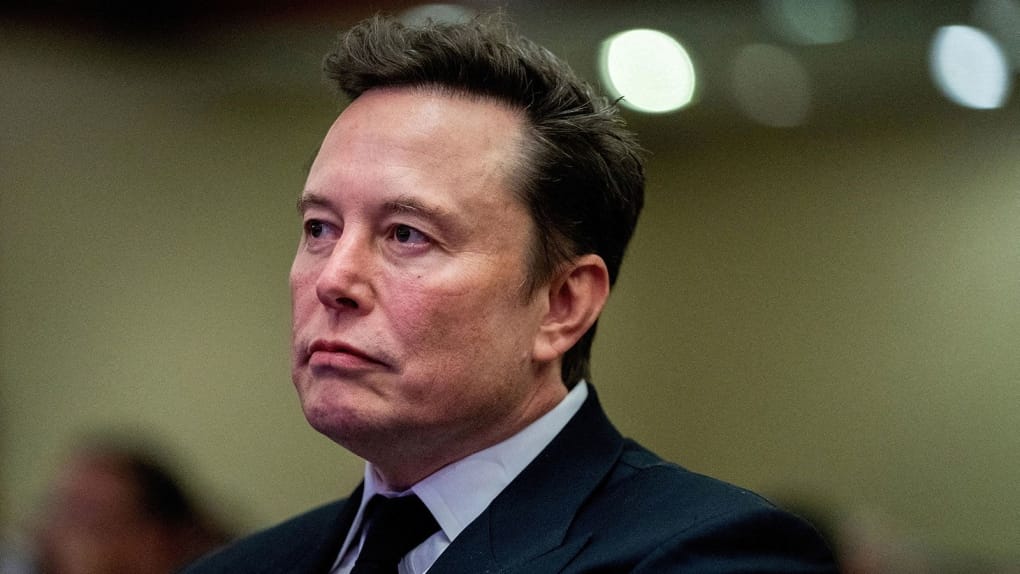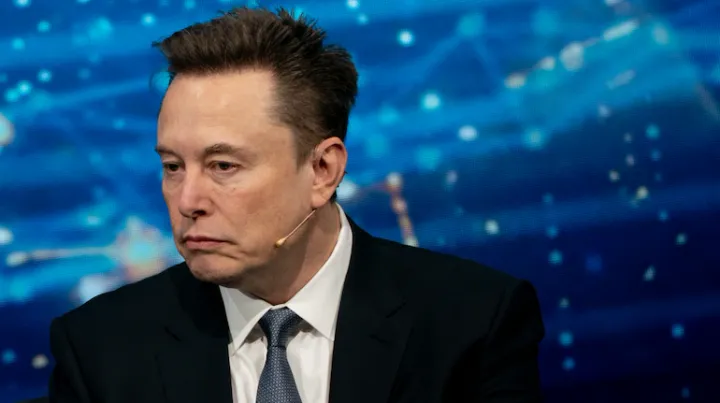Elon Musk’s Influence Over Congress: How the Tech Mogul Helped Fuel the US Government Shutdown Crisis
Elon Musk’s social media campaign against a bipartisan government funding deal exposed deep divisions within the Republican Party, pushing Speaker Mike Johnson to the brink as a government shutdown looms. Here’s how Musk’s influence could reshape Congress in the months ahead.

In an unexpected twist to the ongoing government funding drama, tech billionaire Elon Musk has stepped into the fray, using his vast influence and social media megaphone to ignite opposition among conservatives in Congress. As the US government teeters on the edge of a shutdown, Musk’s powerful voice—amplified by his purchase of Twitter (now X) and his close ties to key political figures—has proven to be a game-changer, reshaping the political landscape in Washington.
Despite no official role in the government, Musk’s intervention has injected chaos into a delicate negotiation process. On Wednesday morning, the tech mogul took to X to slam the compromise government funding deal struck by Speaker of the House Mike Johnson and House Democrats. What followed was an eruption of conservative opposition that ultimately caused a key proposal to fail, leaving lawmakers scrambling for alternatives.
Musk, who has amassed a fortune of hundreds of billions, seems to have a direct line to both Republican voters and key figures within the party. His critique of the funding deal—supported by Johnson and intended to avoid a government shutdown—pushed the Republican Party further to the right and even drew the ire of Donald Trump, who also voiced his disapproval of the legislation.

The Musk Factor: A Media Mogul’s Impact on Political Strategy
Elon Musk’s role in this shutdown crisis goes far beyond just another billionaire using social media for political influence. His vocal opposition to the government funding measure, which aimed to keep the government operating until mid-March 2024, generated a cascade of conservative resistance. Over the course of the day, Musk posted dozens of messages on X, amplifying unverified claims and criticisms that the bill contained too much spending and too many Democratic priorities.
Musk’s relentless barrage was echoed by former President Donald Trump, who on Wednesday evening weighed in on the debate, condemning the bill and calling for an immediate suspension or even the elimination of the nation’s debt ceiling. As Trump’s comments gained traction, support for the bipartisan proposal quickly unraveled. By Thursday afternoon, Republicans had proposed a new, slimmed-down version of the bill, but it failed to gain traction, with 38 Republicans voting against it, much to the frustration of party leaders.
Trump's Influence and Musk’s Rising Power
The current turmoil highlights a critical question for Republicans: Can they remain united in the face of external influences like Musk and Trump, or will these forces deepen divisions within the party? This week’s events offer a glimpse into the potentially chaotic months ahead, particularly as Republicans prepare for the 2024 elections.
Trump’s involvement in the shutdown drama is particularly telling. While the president-elect has made it clear that he prefers a tough stance on government spending, his inconsistent position on the debt ceiling has left many in Congress confused. His latest call for an immediate debt ceiling suspension caught many Republicans off guard, highlighting the unpredictability of Trump’s influence on Capitol Hill.
Meanwhile, Musk’s growing role in shaping conservative discourse raises questions about how his influence will continue to impact government decision-making. As the founder of Tesla and SpaceX, Musk has leveraged his vast wealth and media reach to sway public opinion—and now, it appears, he’s using those same tools to influence lawmakers in Washington. In many ways, Musk’s brand of political influence—driven by social media and backed by his business empire—appears to be reshaping the balance of power within the Republican Party.
The Power Struggle: Speaker Mike Johnson’s Authority in Jeopardy
As Speaker of the House Mike Johnson faces increasing pressure from both the far-right and influential figures like Musk, his leadership is being tested like never before. Johnson, who replaced Kevin McCarthy after the latter’s historic ouster earlier this year, was thrust into the spotlight as he sought to navigate the complex web of demands from both his party and the Democrats.
For Republicans, Johnson’s role as Speaker has been marked by internal strife. His leadership team has struggled to find consensus among party members, some of whom are openly skeptical of the traditional processes of governance. This week’s failure to secure enough votes for the government funding measure underscores the deep divisions that still exist within the GOP—divisions that Musk’s involvement seems to have exacerbated.
Johnson’s authority over the House Republican Conference is now under scrutiny. Not only did Musk’s intervention derail the funding deal, but the Speaker now faces the possibility of losing the confidence of his own party. Already, conservative firebrand Rep. Marjorie Taylor Greene of Georgia has floated the idea of replacing Johnson with someone more aligned with the far-right agenda, even suggesting Musk as a potential candidate for Speaker.
A Divided Republican Party Faces Shutdown Chaos
As we head into the final days before the potential government shutdown, the Republican Party’s narrow majority in the House is becoming increasingly unstable. The rift between the party’s establishment wing, led by Speaker Johnson, and its more conservative factions, has been exposed. With external pressures from figures like Musk and Trump, who wield significant influence over conservative voters and lawmakers, it remains unclear how the GOP will proceed.
Despite the chaos, Johnson and his leadership team continue to search for a path forward. Their latest proposal—a stopgap measure with some disaster relief funding—has yet to gain enough support, and the pressure is mounting. Johnson’s ability to maintain unity within his party is now at a crossroads, and even the prospect of a shutdown does not seem to be enough to push Republicans into line.
What’s Next: A Test of Leadership and Political Stability
The stakes couldn’t be higher for Speaker Johnson and the future of the Republican Party. If the party cannot find a way to unify around a solution to avoid a shutdown, it will reflect poorly on its ability to govern in the months ahead. Furthermore, Johnson’s leadership will be tested as the party prepares for what is likely to be a contentious election cycle in 2024.
With external figures like Musk and Trump exerting their influence on Capitol Hill, the Republican Party must grapple with a new era of political power—one where media moguls and business tycoons play a critical role in shaping legislative outcomes.
Conclusion: Musk’s Influence Is Here to Stay
For better or worse, Elon Musk’s influence over the political process is only growing. His ability to sway public opinion, shape conservative discourse, and inject uncertainty into critical moments of governance highlights the evolving nature of political power in the United States. As the government shutdown drama continues, it is clear that Musk’s voice will remain an important factor in the direction of the Republican Party—and the future of American politics.



